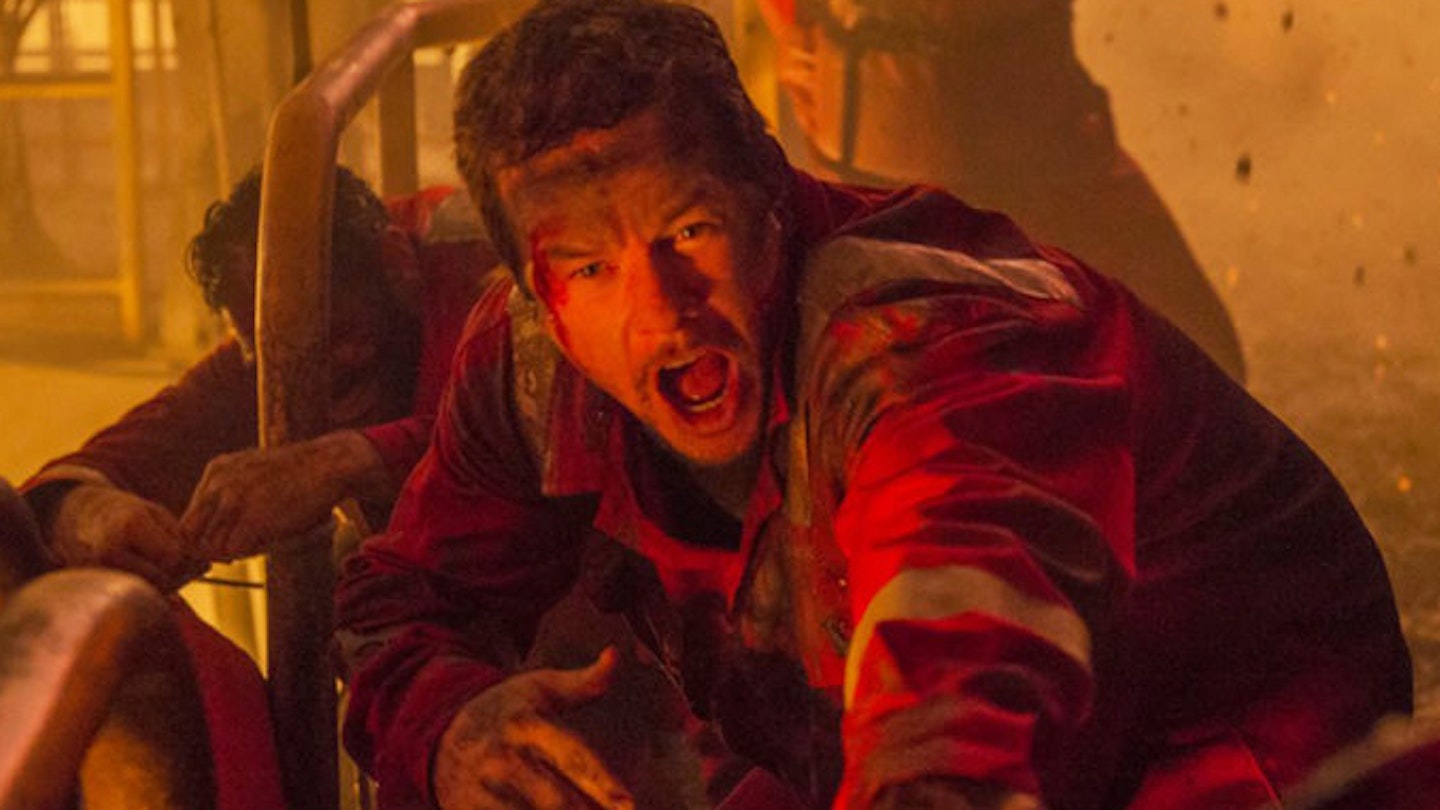Mark Wahlberg and Peter Berg’s last movie together as an actor-director pairing took the unusual step of spoiling itself with its title: Lone Survivor. There are no such spoilers in the title of their next movie together, just a matter-of-fact statement of intent. Deepwater Horizon is, the title says, a movie about an oil rig. But not just any oil rig — one that was consumed by the worst oil rig disaster in the history of the United States on 20 April, 2010; one that claimed the lives of 11 men, caused untold environmental damage, and cost billions of dollars.
For an hour, the attention to detail, pacing and verisimilitude is Paul Greengrass-level stuff.
It’s also the place on which we spend virtually the entire movie, save for a very brief opening section where we’re introduced to Mike Williams (Wahlberg), the kind of stoic everyman Wahlberg has down to a fine art, at home with his family. Over the next hundred minutes, Williams will function as the eyes and ears of the audience, there to translate reams of confusing, dense terminology about kill pumps, negative pressure tests, and blowout preventers into layman’s terms.
It’s unsurprising that it’s Wahlberg upon whom the film focuses. After all, not only is he one of the producers, but he’s actually an instigator of the project, along with original director J.C. Chandor. Following a classic case of creative differences, Chandor departed at the 11th hour, with Wahlberg drafting in the tried-and-trusted Berg (they have another two films in the pipeline) for his first disaster movie. Second, if you count Battleship, but that was largely unintentional.
We’ll never see Chandor’s version of this movie, of course. Although he’s also said enough about his intentions in previous interviews to suggest that it would have been a forensic look at the disaster, its aftermath and the culpability of giant companies BP and Transocean in the lead-up. While elements of that remain here, Berg is more interested in the build-up to the maelstrom. He makes us wait over an hour for the shit, oil, mud and flames to hit the fan.
It’s time well spent as we get to know the layout of the (meticulously recreated) platform, while Berg expertly cranks up the tension — every test of the underwater pipe, which we know is dangerously overloaded, could be the one that blows; every extended close-up of a gasket, a dial wavering towards the red zone, or a pump bulging with lethal pressure throbs with ominous intent.
With events moving inexorably towards the moment of doom, this is not a movie that slows down to smell the flowers.
Wahlberg’s Williams is the only character we get to spend any significant time with outside the rig, so a lot of the characterisation of the rest of Deepwater Horizon’s personnel is achieved through casting shorthand. Need someone to play a BP executive so utterly oleaginous it’s a wonder they don’t try drilling him instead? Call John Malkovich. Looking for a grizzled old stager with an epic ’tache who knows oil rigs like the back of his hand — you know, a real Kurt Russell type? Try Kurt Russell. In fact, Russell — enjoying a welcome renaissance at this late stage of his career — is the standout as ‘Mr Jimmy’, a man not only deeply contemptuous of his BP superiors, but who, on some level, suspects that the whole thing could go south very quickly. He has no idea, of course, just how south, and just how quickly.
For when the disaster finally comes, it comes in the blink of an eye, escalating from an onslaught of oil to a tumultuous explosion that rips through the station, tosses men around like matchsticks, and ignites everything that can burn and even a few things that can’t.
Strangely, it’s at this point the film loses momentum and tension as Berg struggles to make sense of his towering, floating inferno. When everything’s alight, everything looks the same, so all that work setting up the geography of the place goes to waste. And while there’s a fair amount of suspense in sequences where Wahlberg pokes around dark corridors looking for injured colleagues, it doesn’t quite grip as it should. Like a true blowout, it’s also over quicker than you might expect. But for the first hour the attention to detail, pacing, and sense of verisimilitude is Paul Greengrass-level stuff, and a great testament to extraordinary courage and the heroism of ordinary men.








